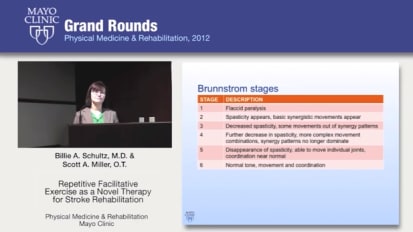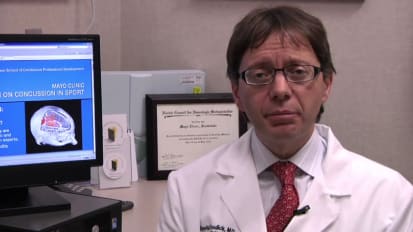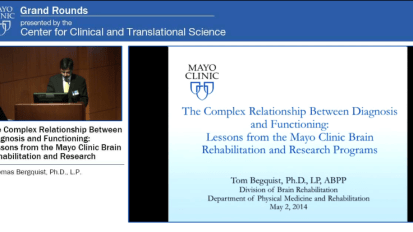Latest Videos |view all videos

Repetitive facilitative exercise as a novel therapy for stroke rehabilitation
Billie A. Schultz, M.D., and Scott Miller, O.T., present on current clinical research happening in stroke rehabilitation, repetitive facilitative exercise. This is a novel therapy technique that addresses arm weakness after a stroke has occurred.

Does anesthesia hurt babies' brains? Why translational research is important (and difficult)
In this Mayo Clinic Grand Rounds presentation, David O. Warner, M.D., explores the importance of translational research in the impact of anesthesia on young children's brains.

18-fluorodeoxyglucose PET in people with active myelopathy
Eoin P. Flanagan, M.B., B.Ch., discusses his article appearing in the November 2013 issue of Mayo Clinic Proceedings, which suggests that PET scans may give a clue to the underlying etiology in patients with spinal cord disease.

Stroke: Risk factors, symptoms and the importance of time
David A. Miller, M.D., a diagnostic radiologist and director of The Joint Commission-certified Comprehensive Stroke Center at Mayo Clinic's campus in Jacksonville, Florida, provides an overview of stroke.

Tablet computers acceptable to read EEG results
A study by physicians at Mayo Clinic's campus in Arizona, presented at the 2013 American Academy of Neurology conference in San Diego, has determined that tablet computers can be used to review EEG results remotely.

Return to play after a concussion
Concussion has become a major public health concern. One of the predominant questions is: When is it safe to return to play after a concussion?


